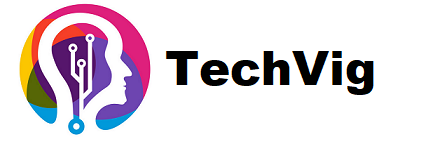Do you wish to work from anywhere in the world? Are you a problem-solver with a desire to use technology to make people’s lives better? If yes is your answer, then you might prefer working as a remote software developer. But before you take the plunge, you must know the perks and challenges associated with remote work. In this blog, we’ll cover exactly that. We’ll tell you everything you need to know about remote software developer jobs and how to get one. Let’s take a look:
Overview of the remote developer job market
‘Web developer employment is expected to grow by 8% between 2019 and 2029, substantially faster than other occupations’, says the US Bureau of Labor Statistics. At the same time, by 2028, it is expected that 73 % of all teams will feature remote workers. There are more than 7,000 remote developer jobs on indeed.com and more than 3,000 vacancies on LinkedIn in our real-world scenario.
Of course, this is just the beginning; there are hundreds of more job forums to look at, as well as organizations who advertise remote job opportunities. In short, the remote developer employment market is booming, and this tendency will continue even after the wake of the COVID-19 pandemic. Now the question arises — How to become a remote software developer?
How to become a remote developer
The prospect of becoming a remote developer can be financially rewarding. But how exactly do you go about becoming a remote developer? Here are 6 essential steps you’ll need to take:
1. Learn the necessary skills
First and foremost, you must be knowledgeable in the required skills. You’ll need to know HTML, CSS, and JavaScript at the very least. You’ll also need to familiarize yourself with various libraries and frameworks and learn how to use tools like GitHub. Moreover, Python, WordPress, R, Android, and Swift development skills are popular in the IT space, so if you are serious about building a career as a remote software developer, make sure to master them.
2. Prepare your portfolio
The next step is to build and refine your developer portfolio. Your portfolio is a personal website that introduces you to potential employers, summarizes your abilities and areas of experience, highlights projects you’ve worked on, lists your contact information, and includes links to your projects and social media profiles.
3. Gain experience working in a remote environment
With more experience, it might be easier to find work in this field. But don’t be disheartened if you don’t have any prior experience. Employers are always looking for proficient and hard-working programmers who can learn on the job, and remote software developers are in high demand. If you want to work remotely, it’s a good idea to get some remote experience first. You’ll be able to show potential employers that you’re capable of managing your own time and tasks autonomously and that you can work with little supervision.
4. Prepare your remote setup
This may seem self-evident, yet it is critical. You’ll need a dedicated workstation with a proper desk, a comfortable chair, sufficient lighting, a reliable internet connection (Probably ethernet or wi-fi), and a good laptop or desktop computer (or both) if you’re going to work remotely full-time. You won’t concentrate and put yourself into hours of coding or debugging if you don’t have the right infrastructure in place. It’s critical to treat your remote job as seriously as any in-house job, which entails providing yourself with the right tools and surroundings.
6. Where to look for remote developer jobs
It’s always a good idea to cover all bases while looking for remote software development jobs. Examine traditional employment boards as well as those that specialize in remote positions. At the same time, make sure to target specific companies; many businesses may only post job openings on their website. Finally, if you envision working at a position which isn’t advertised as remote, apply nonetheless! In today’s economy, more and more firms are willing to hire remote workers, so you might be able to work out a more flexible schedule.
Popular platforms for finding remote developer jobs:
Summary
In the United States, the typical base income for a software developer is $78,223 USD, and remote software developers can earn as much as, if not more, than their in-office colleagues. But to acquire a remote software developer job, you need to implement certain skills, such as discipline, communication, self-motivation, and time management, in yourself. Once you have the requisite skills, you can look for steady and long-term remote software development jobs on Turing.com.
The pandemic has also given remote work a great push. According to an estimate by the end of 2021, almost 36.2 million Americans will be working from home. So, whether you want to work from home, have more flexibility in your schedule, or just become a digital nomad, becoming a remote software developer will be your way forward.
Author Bio
Harika Kochhar is a technical content writer with Turing. She loves to travel and read books when not writing about AI, big data, and remote work.
Meta Title:- How To Become A Remote Software Developer
Meta Description:- Learn how to become a remote software developer and the popular platforms like Turing.com can help you get remote software jobs.






